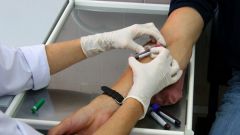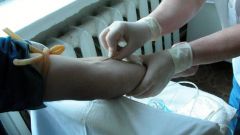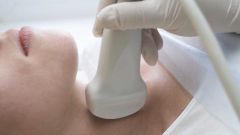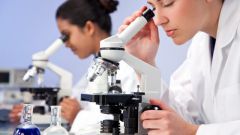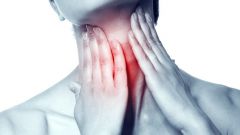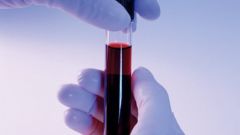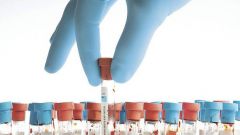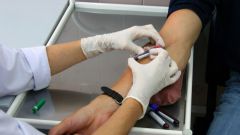Instruction
1
A blood test for hormones perform to determine the condition of the thyroid gland. With this purpose it is necessary to take blood from a vein. The evidence for the purpose of such analysis are: the suspected violation of the function of the thyroid gland, mental retardation in children, goiter, hair loss, infertility, cardiac arrhythmias, amenorrhea, decreased libido, impotence.
2
1 month before the study eliminate the intake of drugs containing thyroid hormones (in the absence of specific recommendations endocrinologist). 2-3 days refrain from taking drugs containing iodine, as well as adjust the diet, limiting the consumption of food with high content of fat. On the eve of delivery of the analysis eliminate physical exertion, stress, Smoking, alcohol intake. Blood need to take on an empty stomach is not recommended even to drink water. It is desirable that sampling analysis was performed prior to 10:00-10:30 am. Immediately before blood try to be at rest for about half an hour.
3
In the study of blood and determine the content of TSH (thyroid-stimulating hormone, thyrotropin), hormones T3, T4, detect antibodies to thyroglobulin, thyroid peroxidase. TSH (thyroid stimulating hormone) is a pituitary hormone that stimulates the secretion of T3 and T4 thyroid hormones. Its content in blood decreases with the increasing of the thyroid gland and increases with decrease of its function. Normal values are 0.4 to 4.0 Units/ml.
4
Free triiodothyronine (T3) - a hormone of the thyroid stimulating oxygen metabolism. Its normal values range from 2.6-5.7 pmol/l Free thyroxine (T4) - the hormone thyroid simulating protein synthesis. Normally, this ratio is from 9.0 to 22.0 pmol/L. Study on antibodies to thyroglobulin (at-TG) was performed to detect autoimmune thyroid disease: atrophic autoimmune thyroiditis, toxic goiter, Hashimoto's disease. Normal values of index are 0 to 18 U/ml.
5
Determination of antibodies to thyroid peroxidase (microsomal antibodies TPO) is the most objective test to detect autoimmune thyroid disease. Normally, these indicators should be less of 5.6 U/ml. the Increase or decrease in production of thyroxine, triiodothyronine and thyroid-stimulating hormone indicates a malfunction of the thyroid. The condition, caused by an increase in synthesis of hormones, called hyperthyroidism (thyrotoxicosis), while reducing the level of thyroid hormones hypothyroidism appears.

